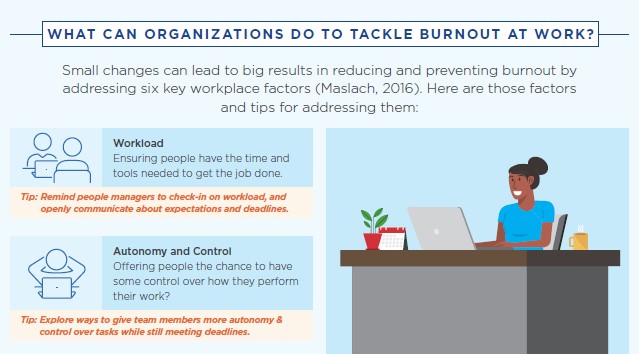Half of Young Workers Report Mental Health Challenges
A new survey of young professional workers (.pdf) finds that just over half (51%) reported needing help for emotional or mental health problems in the past year. While many recognize employer efforts to address mental health in the workplace, the majority feel more could be done. More than a third (38%) of young professionals say their workplace negatively impacts employee mental health and wellbeing.
The survey, conducted among college graduates 22 to 28 years old, was a collaborative effort of Mary Christie Institute, the American Association of Colleges and Universities, the Healthy Minds Network, and the National Association of Colleges and Employers.
Young professionals who graduated in the last six years have come of age in an anxious and uncertain time, the report notes. These recent college graduates have experienced the enormous growth of social media, political and cultural divisiveness, and unprecedented upheaval and change related to the global pandemic. Many had their college experience become virtual or started their first jobs without meeting co-workers in person. While many young professionals reported mental health challenges, more than half (53%) said their mental health is better now than when they were in college. This is encouraging for young people moving into the workforce, yet it highlights ongoing concerns among college students.
Gender and Race/Ethnicity Differences
The survey found some clear gender and ethnic racial differences in workplace experiences. Men (68%) were much more likely to report good or excellent mental health than women (45%). Black respondents were less likely to feel part of the work community than their white peers (50% vs 68%) and were less likely to say they have colleagues who would support them if they were struggling compared to their white counterparts (52% vs 73%). However, Black and Asian American young employees reported better overall mental health than their white peers (60% and 63%, respectively, said they have good or excellent mental health), compared to white (52%) and Hispanic (49%) young professionals.
Finding Support Among Co-workers
The survey also identifies some positive experiences around talking about mental health issues in the workplace. More than one in four young employees said they had reached out to someone at work about a mental health problem, and of those, the vast majority (91%) felt they received a supportive response.
Employer Actions to Support Mental Health and Wellbeing
While nearly half of young professionals said mental health is a priority at their workplace, nearly 60% said more should be done to support employee mental health. And they indicated they are willing to engage. More than half said they would engage with each of these types of mental health resources/supports:
- Help finding mental health care.
- Mental health support groups.
- Self-guided therapy resources at their place of employment.
- Mental health/gatekeeper training.
There are many ways employers can help. The Center for Workplace Mental Health, a program of the American Psychiatric Association Foundation, offers tips for employers to help prevent burnout and support employee well-being, around the themes of:

View the full infographic (.pdf)
- Workload - Ensuring people have the time and tools needed to get the job done.
- Autonomy and Control - Offering people the chance to have some control over how they perform their work.
- Reward and Recognition - Ensuring people are recognized and rewarded for a job well done.
- Fairness - Offering opportunities for people to be promoted and feel like they are treated fairly at work.
- Community and Sense of Belonging - Creating opportunities for people to feel like there is trust & mutual support with colleagues.
- Training - Offering people managers training on how to effectively support their team members.
Learn more at the Center for Workplace Mental Health.
Reference
Mary Christie Institute. 2023. The Mental Health and Wellbeing of Young Professionals (.pdf)
